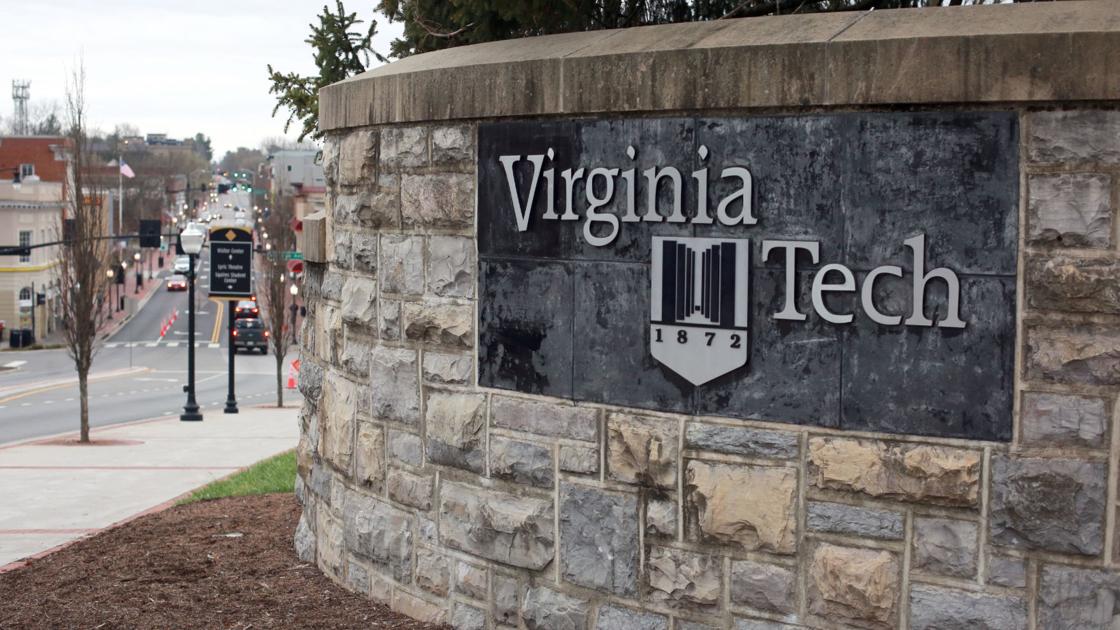
A conservative free-speech group is seeking a preliminary injunction that would prohibit Virginia Tech from enforcing policies that it says encroach on the rights of right-leaning students.
Speech First Inc. wants federal Judge Michael Urbanski to prevent the school from enforcing five anti-bias policies until he rules later on a lawsuit filed in April on behalf of three students.
Starting around 2016, colleges and universities began to implement rules and procedures that are portrayed as efforts to limit harassment and discrimination — but in fact were designed to chill free speech about political issues, the group maintains.
“Virginia Tech is not unique,” attorney Michael Connolly said during virtual arguments Friday in Roanoke’s federal court. “There are others all over the country.”
The students contend in their lawsuit that they hold views that are unpopular on campus, such as opposition to the Black Lives Matter movement, same-sex marriage, abortion and the recognition of transgendered people.
Knowing that they cannot ban such speech outright, Tech officials have drawn up an “elaborate scheme” of policies that will make conservative students afraid to say what they think to classmates and others, Connolly argued.
Although the school has revised one of its policies, clarifying that a prohibition on speech for “partisan and political purposes” applies only to employees, it is defending the rest and urged Urbanski not to grant the request for a preliminary injunction.
“It cannot be that Virginia Tech is essentially prohibited in the face of the First Amendment” from having anti-harassment policies, said Counsel to the Attorney General Jessica Samuels, who represents university president Tim Sands.
After hearing more than two hours of arguments, Urbanski said he will issue a ruling soon in writing.
“I get the fact that First Amendment rights are critically important, but you are seeking a preliminary injunction, which is an extraordinary remedy,” he told Connolly.
To prevail, the three unidentified students would have to show they will suffer “irreparable harm” if the policies remain in place, among other things. But they waited weeks since the lawsuit was filed before making arguments on what is normally considered an emergency request, Urbanski said.
In urging the judge to hold off on a preliminary injection, Samuels noted that a decision could affect nearly 40,000 members of the Tech community.
But to that extent, Urbanski replied, “If the folks [who brought the lawsuit] feel chilled to make comments, then that affects thousands of people, too.”
The lawsuit claims that the university’s anti-discrimination and harassment policies are overly vague because they forbid “telling unwelcome jokes about someone’s identity” and urging “religious beliefs on someone who finds it unwelcome.”
Speech First, which has brought similar suits in other states, alleges as unconstitutional Tech’s ban on using university computer networks for “partisan political purposes”; its bias-related incidents policy; and a policy that forbids literature distribution or petition signing on campus without prior written authorization.
The lawsuit’s filing in U.S. District Court in Roanoke came one week after the university denounced contents of a right-wing club’s leaked group chats as “homophobic, racist, ableist, and misogynistic.”
Chats from the Turning Point USA at Virginia Tech club — which invoked conspiracies about the Obamas and poked fun at trans and gay culture — were sent to the Student Conduct and Title IX offices for review, according to a university official.
No individual, nor the chapter itself, has faced discipline or sanctions, a Tech spokeswoman said at the time. In court Friday, the school said there have been no sanctions in that or other cases.
Nonetheless, the students represented by Speech First say they have been discouraged from speaking out.
One plaintiff, named in the suit only as Student A, does not support gay marriage. “He thinks it leads to a slippery slope. He thinks it will lead to society being forced to accept marriages among multiple people or something even worse,” the lawsuit states.
“Student B doesn’t want to be forced to call someone a ‘he’ or a ‘she’ when that is not the person’s biological sex,” the filing continued. “He thinks it’s terrible that some men are allowed to play women’s sports because they claim to be women.’”
Speech First argues that college campuses are “supposed to serve as a marketplace of ideas and a forum for the robust exchange of different viewpoints” — and that Tech’s policies discourage such a dialogue.








